Reviews
Michael Lehmann
USA, 1996
Credits
Review by Beth Gilligan
Posted on 03 July 2006
Source 20th Century Fox DVD
Categories Chick Flicks
Around the same time Calvin Klein ads featuring a waiflike Kate Moss were being plastered onto billboards all over the country, Naomi Wolf published her controversial bestseller _The Beauty Myth _, a scathing critique of the ways in which fashion magazines and cosmetic companies inundate women with unrealistic standards of beauty. Unsurprisingly, Wolf’s argument fell on deaf ears in Hollywood, with the town’s surplus of male executives, producers, and directors favoring actresses who fit the stereotypes Wolf was seeking to destroy. Given this context, screenwriter Audrey Wells’ decision to incorporate a Wolf-like argument about female body image into what is largely considered the frothiest of film genres—the romantic comedy—can be considered a subversive move.
Wells kicks off the film with a clever reverse Cyrano de Bergerac scenario. Abby (played by Janeane Garafalo), a veterinarian who hosts a popular call-in talk show about pets, has grown used to feeling invisible before members of the opposite sex. Although she is quick-witted and successful, she fears she is not sufficiently pretty or thin enough to attract a decent guy. Tall, blonde, and rail-thin, Noelle (played by Uma Thurman) has the opposite problem — men fall all over themselves to be near her, but have little interest in what she has to say.
When Brian, a British photographer, asks Abby out sight unseen (he has called in to her show for advice about his unruly dog), she panics and concocts a description of herself that sounds suspiciously like her neighbor Noelle. After she stands him up on their date, Brian comes by her office to meet her, leaving Abby no choice but to call on Noelle to impersonate her.
What follows is a tangle of mistaken identities that test not only Abby and Brian’s budding romance but also Abby and Noelle’s friendship. As he puzzles over the disconnect between the intelligent, articulate woman he talks with on the phone and the ditzy, drop-dead gorgeous creature he goes out with, a rivalry develops between the two women, as Noelle also finds herself attracted to Brian.
While The Truth About Cats & Dogs may at the outset appear to be catering to certain stereotypes—namely, the dumb blonde and the pudgy girl who is smart but can’t snare a man—Wells and director Michael Lehmann instead use these images to explore the degree to which society judges women by their looks. One of the film’s most pointed comments on this takes place a mall cosmetic counter, where Noelle has taken Abby in hopes that a makeover will boost her friend’s sagging self-esteem. The plan backfires when the woman at make-up lady responds icily to Abby’s nervous jokes about pore-minimizing creams, cruelly shoving a magnifying mirror in front of her face while narrating the imperfections she sees before her.
The film then cuts to a shot of Abby, her face caked with layers of make-up, weeping in a nearby shoe department as Noelle passes her tissues and tries to console her. “I don’t know why I let her do this to me‚Ķif I was a guy, I think women would like, line up to go out with me. I;#8217;m smart. I have a good sense of humor. I make a great living,” sobs Abby, to which Noelle earnestly responds, “I’d fuck you.” In addition to underlining the fact that it is Abby and Noelle, not Abby and Brian, that are the central couple of this movie, these lines bluntly illustrate the oft-commented upon double standard that applies to successful men versus successful women looking for mates.
The scene also stands out in the context of romantic comedies (e.g. She’s All That, Pretty Woman), in which makeovers are almost universally conveyed as fun, positive experiences that result in the awe and respect of the subjects’ male love interest. The Truth About Cats & Dogs not only rejects this notion (Abby’s transformation is an internal, not external one), but hints at the deep sacrifices women make in order to meet these societal standards of perfection.
The film doesn’t shy away from the fact that Noelle skips meals to maintain her pencil-like physique, and it is telling that her attraction to Brian intensifies when he insists on sharing a cake with her. In one of the movie’s most famous scenes, Noelle remarks to Abby, “You and I combined make the perfect woman,” to which Abby tartly replies, “No. You and I combined make the perfect political prisoner. What we really do well is act self-righteous and starve.” Rather than reinforcing the image of female perfection, as many movies and womens’ magazines arguably aim to do, this line highlights the impossibility of such a woman (or man) ever existing.
In the end, both Noelle and Abby wind up transcending the labels initially bestowed on them. Noelle, while never revealed to be an intellectual powerhouse, still turns out to be a wise, true, and compassionate friend, while Abby grows more comfortable in her own skin and finds that confidence and intelligence don’t always prove a deterrent to men. While their mutual attraction to Brian sets these transformations into motion, it is the strong bond of friendship that grows between the Abby and Noelle that leaves the most enduring effect on the two women.
More Chick Flicks
-
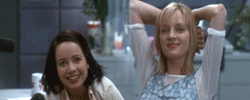
The Truth About Cats & Dogs
1996 -

Say Anything
1989 -
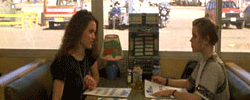
Gas Food Lodging
1992 -
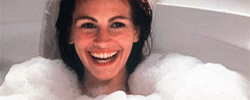
Pretty Woman
1990 -
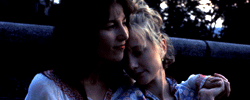
Walking and Talking
1996 -

Mean Girls
2004 -

Fried Green Tomatoes
1991 -
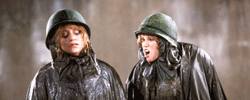
Private Benjamin
1980 -
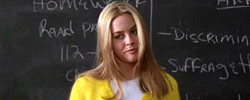
Clueless
1995 -
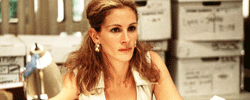
Erin Brockovich
2000 -

The Bridges of Madison County
1995 -
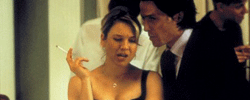
Bridget Jones’s Diary
2001 -

Working Girl
1988 -

Bend It Like Beckham
2002 -

Bring It On
2000 -

Ghost
1990 -
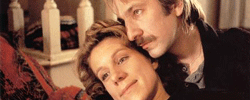
Truly Madly Deeply
1991 -
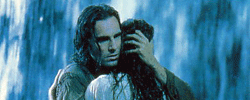
The Last of the Mohicans
1992
We don’t do comments anymore, but you may contact us here or find us on Twitter or Facebook.



